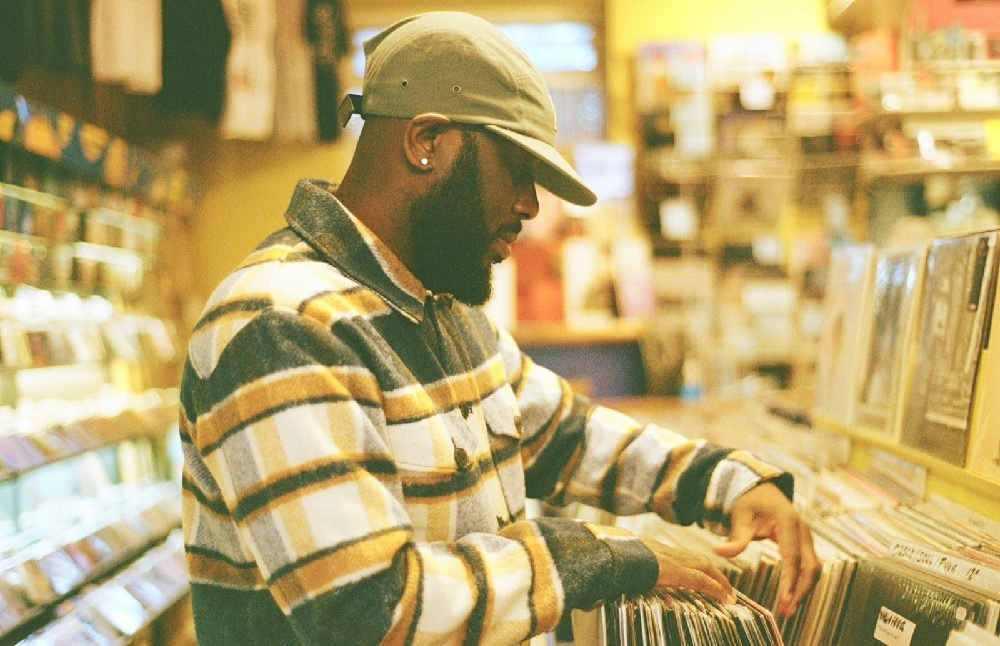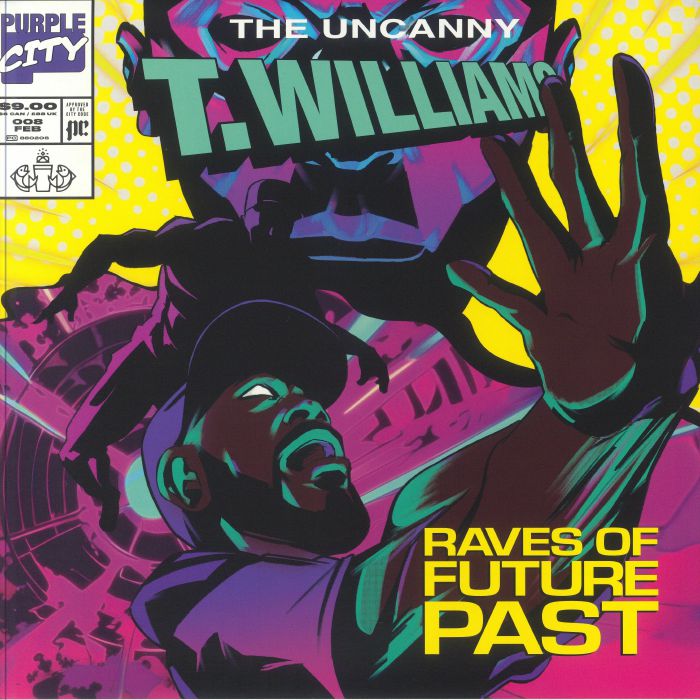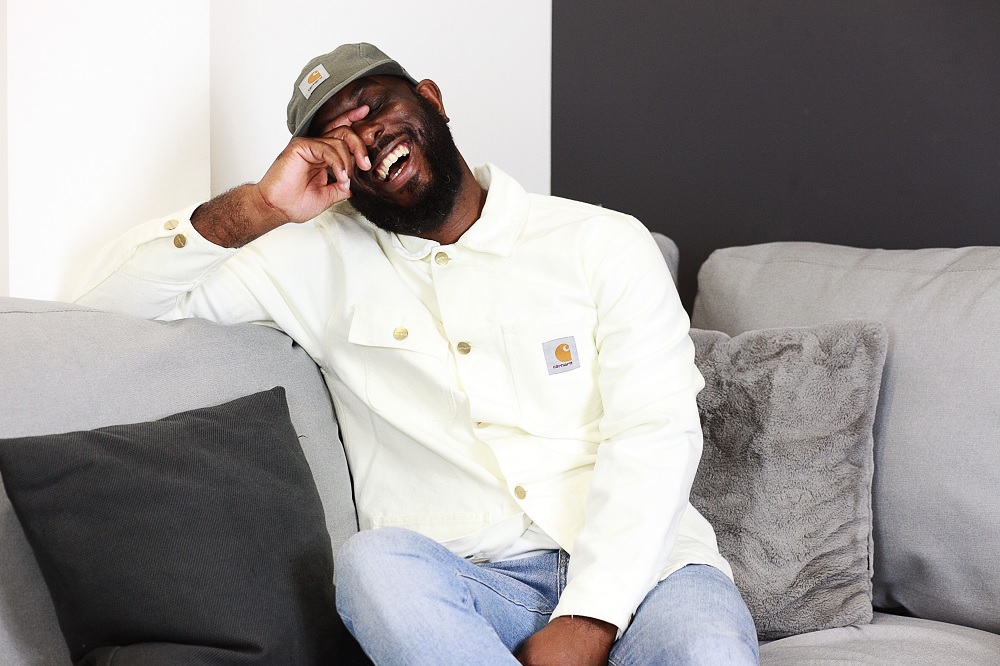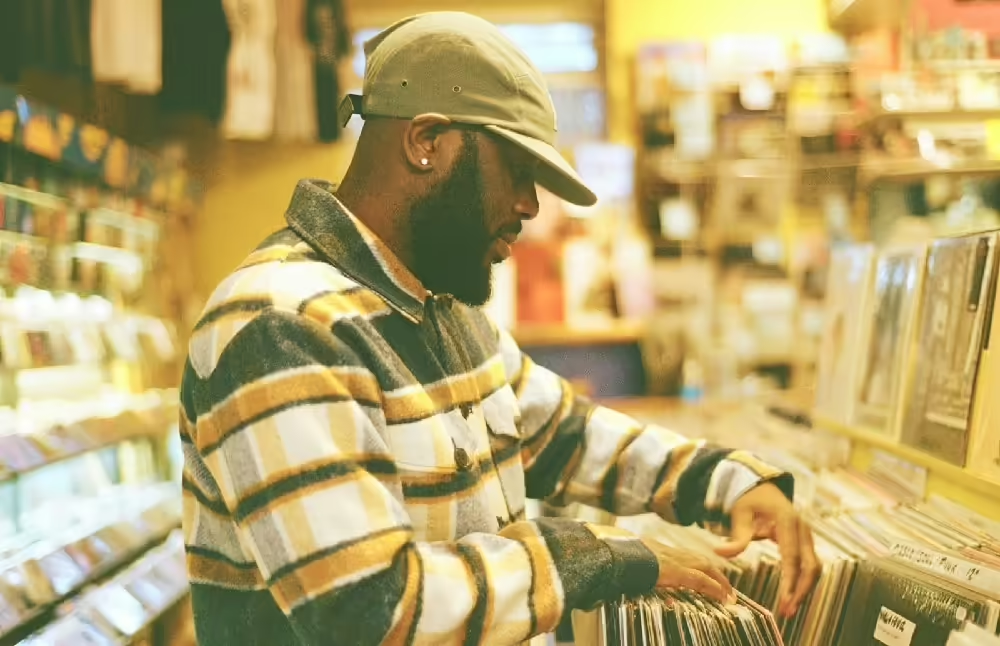T Williams interview: “I’d describe this album as the album of a lifetime” | Juno Daily
The house and garage don delves back into the futuristic past

What happens when lockdown hits a well known house and garage DJ and forces him to stay indoors. Well, in the case of T Williams, it led to that most joyful of activities for us vinyl lovers – a thorough reorganisation of his record collection. That, in turn, led this former member of early dubstep/grime crew Black Ops, inventors of the sub-low sound, to start experimenting with making rave tunes that took in the frenetic energy of hardcore and jungle but married them with the sophisticated production techniques of the 2020s.
The result is Raves Of Future Past, an album that imagines the genre barriers between the various sub-genres of dance music in the early 90s never existed. It’s an whose grooves and styles are free to roam wherever the vibe takes them, without fear of judgement. That’s probably why it sounds so damn good.
So, naturally enough, when the chance arose, we wanted to quiz the man himself on the raves of the past, the present and the future… This is what happened.
Hello T Williams! Hope you’re well. Where are you as you type this? Had a good day so far? Off anywhere exciting later or been anywhere nice earlier?
I’m in my studio as I type this, with a hot chocolate and ring doughnut in hand from the local cafe (I’m trying to cut down on my coffee intake). The day has been great so far, sold one of my old Carhartt 5 panel caps on eBay so I had to mail it from the post office I then had a chilled ride on the central line to my studio listening to a podcast. I wasn’t anywhere too exciting earlier but I was in Brighton at audio active speaking with students about my career and debut album Raves Of Future Past and I managed to get a little evening chill time by the beach before heading back to London.
Congratulations on Raves Of Future Past, it’s a great album. Sorry to point out the obvious but it’s a very different listen to what someone who knows you from your house or UK garage careers might be expecting. How would you describe its sound?
I’d describe this album as the album of a lifetime. It’s the album that encompasses all the influences and scenes that I have been a part of growing up as a Londoner. Some as a raver and others as a part of the foundations. So I would ask anyone who only knows the last decade of my musical career to dig a little deeper and enjoy the treasures they might find in my early years as a young DJ producer from West London.

So the album’s origins lie in the pandemic, during which time you spent countless hours reconnecting with and cataloguing your extensive vinyl record collection of 25 years. What did you learn from that and the old tunes you reconnected with?
What I learnt from my catalogue is that my taste has evolved and changed over the years multiple times. Each time adding on something fresh and new. I’m not one to shy away from understanding the genres of the current young generation. I’ve always tried my best to stay in tune and understand what makes the youth tick. On the other hand, my catalogue reminded me that all the sounds and genres that have gone by over the last 25 years either heavily influence the current musical landscape or are having a genuine resurgence. It gave me a lot of hope and excitement to have the blueprints all around me for current UK dance music.
One thing that always gets quickly forgotten – and it’s the same whether you’re talking about rock ‘n’ roll, rave, jungle or garage – is that when scenes start up, the rules always seem less fixed… In time, they become more conventional. Do you agree? This album feels like you freeing yourself up style-wise again.
I agree with this statement. This album is about freeing myself from any expectations for my music and just creating from the heart. It’s all based on how I felt at the time. Once we have a taste of success in the music business it’s always a massive challenge to stay true to why you began creating in the first place. This album is a strong reminder to myself of the WHY. Why did I want to create dance music as a young kid with no connection to clubbing or even DJ at that point? The main answer I find myself coming back to is because it was fun. Just like for some people, it’s fun to play PlayStation at the end of the day after school or work. It was fun for me to create music.
A machine called Elektron Digitakt also played a big part in its inception. Explain what that is for the un-technically minded, and how it shaped the album.
The Elektron Digitakt is a musical instrument that lets you create and play electronic music without needing a deep understanding of technical details. Imagine it as a compact electronic drum machine and sampler like having a virtual band at your fingertips. The step sequencer which is one of the main features of its design, makes it easy for anyone to create drum patterns on the grid. You basically can’t put a note. In the wrong place. Super ideal for jamming ideas out quickly.
You said you’d have liked to have made this album 20 years ago but you didn’t know how… Do you think people could have handled it then though?
If I’m honest the answer is sadly no. 20 years ago maybe people wouldn’t have understood how all these UK genres are connected but that doesn’t mean I still wouldn’t have liked to have created it back then. Purely from an artist’s perspective even if it was only me and my mates who understood what was going on with the album if I had the technical know-how, I would still have loved to have created it back then. Also taking the same energy from your previous question, this album is about being free and not caring about what others are going to think. So 20 years ago would have been perfect if I could create it.
Why go for the title like Raves Of Future Past? It says somewhere in your blurb that to you this is all rave music, however other people might want to categorise it…
The one common thread through all of these genres is that rave music was the start of it all. It’s in each of these genres’ DNA. Even the term going to ‘Rave’ has never left my vocabulary since I was a child. So although there are most definitely different genres on my album it’s all taken influence from ‘Rave’ culture.

There’s a loose time travelling X-Men theme to the titles and album name, is that right?
Yes, the whole thing comes from a two part episode from the X-Men animated series. Me and Matt Bayfield who co-owns purple city records had both been rewatching the series during the pandemic and came up with the idea that it’d be cool to base the album and song titles around this theme. We have a comic book available to buy as a part of the merchandise bundle which makes the song titles a lot clearer than I could explain here. So if you fan of dope art, stories and listening to music at the same time, I’d suggest getting the full bundle taking an afternoon and listening and reading the story in full.
What’s next for you T Williams? Will we be hearing more of this style from you or is this a one off? Any live shows connected to it? And house/garage-wise, now the pandemic is over and things are getting back to normal, is it busy on that front too?
Now the pandemic is over and I can finally share music you will see a lot more of all these styles. I’ve got some tracks I’ve produced for other artists coming, and just lots more club-focused music between all the scenes. I’ve got a run of free in stores coming up. On the 10th of February you can catch me at Next Door Records, 17th of February at Nothing Ventured down in Portsmouth and 23rd of February I’ll be in San Diego at Sound By The Sea. Also across the summer, there’ll be a bunch of festivals and club shows too. So yes busy on all fronts in 2024.
Ben Willmott
Buy your copy of Raves of Future Past on vinyl by clicking here


